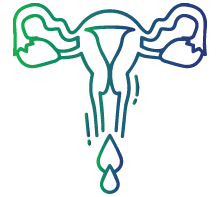
LH/ FSH/ PRL Test
About LH/FSH/PRL test
LH/FSH/PRL test is also called the fertility profile test. It measures the reproductive hormonal levels of LH (Luteinizing hormone), FSH (Follicle stimulating hormone), and PRL (Prolactin) in the blood. These hormones are produced by the pituitary gland and play an important role in the sexual development and functioning of reproductive organs both in females and males. Healthcare providers use this test to determine any fertility issues and disorders of the pituitary gland
Functions of LH/FSH/PRL
· Increase sex drive
· Production of testosterone in males and ovulation in female
· Helps in the regulation of the menstrual cycle in female
· Stimulation of sperm production in male
· Lactation (Milk discharge from the breast)
A LH/FSH/PRL test is done to determine the pituitary hormone levels in the blood. Inadequate levels of LH/FSH/PRL may lead to hormonal imbalance which, may affect the sexual functioning of the body. Thus, getting your LH/FSH/PRL test is recommended to screen and monitor hormonal causes in case of infertility and pituitary gland diseases.
What is the fertility profile used for?
LH/FSH/PRL test is used to determine:

Irregular menstrual cycles

Sperm functioning

Onset of puberty

Breast secretions

Vaginal discharge

Tumours of the pituitary gland
Who should get tested?
LH/FSH/PRL test is recommended to be performed frequently for individuals at increased risk of fertility issues. The following factors can increase the risk of infertility and may affect reproductive health:

Irregular periods

Difficulty in conceiving

Infertility

Early or delayed puberty

Sudden weight gain

Reduced or increased appetite

Low sperm count

Prolactinoma (non-cancerous growth)
Test preparation:
No special preparation is required for this test. Sometimes fasting might be required for prolactin testing. The days of the menstrual cycle must be mentioned. It is typically preferred to collect samples on days 2 or 3 of the menstrual cycle. The table below gives the normal range of FSH/LH/PRL
Interpretation of results
Interpretation of results
|
Normal ranges |
FSH (mIU/ml) |
LH(mIU/ml) |
PRL(ng/ml) |
|
Females |
10-15 |
7-15 |
<25 |
|
Males |
1.5 – 12.4 |
1.7-8.6 |
<20 |
Deviation from normal results indicates the following:
· For effective reproduction, minimum quantities of FSH-LH-Prolactin must be present at periods during the menstrual cycle.
· Women who have high FSH-LH levels may have Turner's syndrome, primary ovarian insufficiency, ovarian cancer, or early menopause. A polycystic ovarian syndrome is characterised by a high LH/FSH ratio (PCOS).
· High FSH-LH levels in men may be a sign of sperm quality problems, Klinefelter syndrome, or testicular problems. All of these could cause male infertility.
· High levels of FSH in children before puberty indicate the early beginning of puberty.
· Decreased levels of FSH-LH may prevent ovulation and reduce sperm production, which can affect both women’s and men's fertility. Low levels can result from abnormalities with the hypothalamus or pituitary gland, from being underweight, or from other problems with the central nervous system.
· Low FSH-LH levels in children may indicate delayed puberty
· Elevated prolactin levels may be detected in PCOS, hypothyroidism and men’s hypogonadism. High levels in both men and women may indicate non-cancerous tumours.
· Low levels of prolactin indicate a lack of breast tissue development and breast milk secretion after delivery.
FAQs
When FSH, LH, and prolactin tests should be performed?
The FSH-LH-PRL test is used to diagnose male and female infertility problems. Depending on various factors like women’s age and stage, results vary. It can be used to identify any dysfunctions or irregularities in the menstrual cycle. It is also used to determine the underlying reason for infertility in women who are having difficulty becoming pregnant
What are the risks associated with the fertility profile test?
There are no known risks. During a blood test, one may experience minor pain or bruising where the needle was inserted, but most symptoms will subside quickly
What is the significance of FSH test in females?
FSH promotes the development of eggs in the ovaries and helps in regulating the menstrual cycle in females. The test is used to examine or help diagnose
· Menopause
· Women who have polycystic ovary syndrome, ovarian cysts
· Abnormal vaginal or menstrual bleeding
· Problems becoming pregnant, or infertility.
What signs indicate low FSH levels?
Loss of pubic hair, irregular or missing periods, hot flushes, and inadequate milk production during breastfeeding are all signs of low FSH levels
What is the significance of LH test in males?
Testicles produce testosterone in response to LH. This enhances sperm production. LH is essential for growing adolescents. It helps the testes of boys produce more testosterone
What is the significance of PRL testing?
It helps in diagnosing prolactinoma (a type of pituitary gland tumour) and determining the underlying cause of a woman's irregular menstruation, unusual discharge from the nipple and/or infertility. It also helps to determine the reason behind poor sexual desire and/or erectile dysfunction

